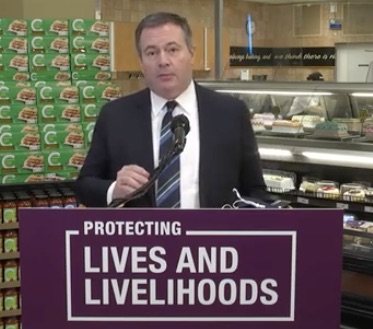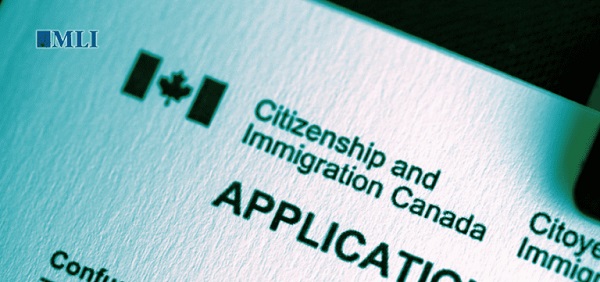Alberta
$1,200.00 boost for “Alberta’s critical workers”

From the Province of Alberta
$465 million for Alberta’s critical workers
Hundreds of thousands of workers who continue to provide critical services to Albertans during the COVID-19 pandemic will receive a one-time payment in recognition of their hard work and sacrifice.
The Critical Worker Benefit is a joint federal-provincial program that will see $465 million go to approximately 380,000 Alberta public and private sector workers as $1,200 cash payments.
“These workers have placed themselves at the front line of this pandemic in order to serve their fellow citizens during a crisis. Alberta’s government is recognizing their good work. We trust this support will help these workers continue to protect lives and livelihoods as we keep fighting this pandemic together.”
The Critical Worker Benefit will be available to workers in the health-care, social services, education and private sectors who deliver critical services to Albertans or support food and medical supply chains.
“I want to thank all the hard-working staff who have gone above and beyond their regular call of duty to support their fellow Albertans throughout this pandemic. This Critical Worker Benefit will go right into the pockets of hard-working Albertans on the front line who have made sacrifices in their own lives for the greater good and well-being of others.”
To be eligible for the benefit, employees must have worked a minimum of 300 hours during the period of Oct. 12, 2020 to Jan. 31, 2021.
“Since the start of this pandemic, we have been deemed an essential service and our store, pharmacy and distribution centre teammates have stepped up to support Albertans and all Canadians. We know that our teammates will be thankful for this recognition and additional support from the Government of Alberta.”
Under the health-care sector, approximately 161,000 eligible employees will receive the Critical Worker Benefit. These eligible occupations include orderlies and patient service associates, respiratory therapists and technologists, nurses (RNs, RPNs, LPNs), food services, housekeeping and maintenance workers and unit clerks.
“I’m proud to see this acknowledgment of our front-line health-care workers. Their continued dedication over the past 11 months caring for patients with COVID-19, but also continuing to provide other important health-care services, has shown tremendous resilience. Their dedication is the strength of our health system and this is just one small way that we can recognize it.”
In the social services sector, approximately 45,000 workers will receive the benefit. Some of the eligible occupations include community disability service workers and practitioners, personal care aides, child development workers, family and youth counsellors, crisis intervention and shelter workers, home support workers, seniors lodge staff, cleaners, food preparation and maintenance workers.
“It has been due to the tremendous efforts of the front-line staff in seniors housing, that our most vulnerable are safe. The precautionary measures workers have taken within their homes and workplaces, where others’ wellness was prioritized over earning potential and personal enjoyments, is why this acknowledgment is so important. This shows appreciation for those our province has had to depend on to keep seniors healthy, happy and safe in licensed supportive living, including lodges, since the onset of the pandemic.”
“Every day, thousands of workers across Alberta support vulnerable people with disabilities and those relying on services provided by shelters. These workers are committed to ensuring people are safe and included in our communities. This benefit acknowledges their extraordinary efforts during the pandemic to provide compassionate and essential care for vulnerable Albertans.”
“Community group care workers and support staff, as well as early childhood educators, have played a critical role in keeping children and youth safe and healthy throughout this pandemic – including staying open or reopening early on to support families. I want to share my sincere gratitude for all their hard work and dedication during these challenging times.”
“Alberta’s seniors lodge workers and unique home operator staff have gone above and beyond to maintain a safe environment for their residents. I am extremely appreciative for the hard work, dedication, and effort of the front-line workers who support seniors and ensure they remain safe during the pandemic.”
Up to 36,000 workers in the education sector will also be eligible to receive the benefit. This includes teacher assistants, bus drivers, custodians and cleaning staff, and administration support.
“Despite the unique challenges that come with learning during a pandemic, students in Alberta continue to receive a world-class education. This is possible thanks to the hard work of thousands of dedicated education workers. This benefit recognizes their determination to go above and beyond for Alberta’s students.”
“Bus drivers across the province have worked tremendously hard to keep students safe while going to and from school. This benefit helps recognize tremendous work done by these essential workers.”
In addition, eligible private sector workers making $25 or less will qualify for the benefit. These workers include: critical retail workers in grocery stores, pharmacies and gas stations; private health provider workers, such as dental assistants, massage therapists and medical administration assistants; food manufacturing and processing workers; truck transportation workers, such as truck drivers and delivery and courier services drivers; and warehouse and storage workers, such as shippers and receivers.
Eligible public sector employees do not need to apply to receive the benefit. Employers will automatically receive the payment through the Government of Alberta to distribute to their eligible employees.
Private sector employers can apply on behalf of eligible employees at alberta.ca/criticalworkerbenefitas of Feb. 17. Employers have until March 19 to apply.
Employers will be responsible for distributing the $1,200 Critical Worker Benefit to their eligible employees.
For detailed information on eligibility and how to apply, please visit alberta.ca/criticalworkerbenefit.
Alberta’s government is responding to the COVID-19 pandemic by protecting lives and livelihoods with precise measures to bend the curve, sustain small businesses and protect Alberta’s health-care system.
Quick facts
- Alberta’s government contributed $118 million toward the $465-million program.
- The breakdown of benefit recipient is:
- Up to $195 million in the health-care sector supporting more than 161,000 workers.
- Up to $55 million toward the social services sector supporting more than 45,000 workers.
- Up to $45 million toward the education sector supporting more than 36,000 workers.
- Up to $170 million toward the private sector supporting more than 140,000 workers.
- Previously allocated:
- $12 million for health-care aides
- $14.4 million for adult congregate care workers
- $3.62 million for children’s congregate care workers
Alberta
Is Canada’s Federation Fair?


 David Clinton
David Clinton
Contrasting the principle of equalization with the execution
Quebec – as an example – happens to be sitting on its own significant untapped oil and gas reserves. Those potential opportunities include the Utica Shale formation, the Anticosti Island basin, and the Gaspé Peninsula (along with some offshore potential in the Gulf of St. Lawrence).
So Quebec is effectively being paid billions of dollars a year to not exploit their natural resources. That places their ostensibly principled stand against energy resource exploitation in a very different light.
You’ll need to search long and hard to find a Canadian unwilling to help those less fortunate. And, so long as we identify as members of one nation¹, that feeling stretches from coast to coast.
So the basic principle of Canada’s equalization payments – where poorer provinces receive billions of dollars in special federal payments – is easy to understand. But as you can imagine, it’s not easy to apply the principle in a way that’s fair, and the current methodology has arguably lead to a very strange set of incentives.
According to Department of Finance Canada, eligibility for payments is determined based on your province’s fiscal capacity. Fiscal capacity is a measure of the taxes (income, business, property, and consumption) that a province could raise (based on national average rates) along with revenues from natural resources. The idea, I suppose, is that you’re creating a realistic proxy for a province’s higher personal earnings and consumption and, with greater natural resources revenues, a reduced need to increase income tax rates.
But the devil is in the details, and I think there are some questions worth asking:
- Whichever way you measure fiscal capacity there’ll be both winners and losers, so who gets to decide?
- Should a province that effectively funds more than its “share” get proportionately greater representation for national policy² – or at least not see its policy preferences consistently overruled by its beneficiary provinces?
The problem, of course, is that the decisions that defined equalization were – because of long-standing political conditions – dominated by the region that ended up receiving the most. Had the formula been the best one possible, there would have been little room to complain. But was it?
For example, attaching so much weight to natural resource revenues is just one of many possible approaches – and far from the most obvious. Consider how the profits from natural resources already mostly show up in higher income and corporate tax revenues (including income tax paid by provincial government workers employed by energy-related ministries)?
And who said that such calculations had to be population-based, which clearly benefits Quebec (nine million residents vs around $5 billion in resource income) over Newfoundland (545,000 people vs $1.6 billion) or Alberta (4.2 million people vs $19 billion). While Alberta’s average market income is 20 percent or so higher than Quebec’s, Quebec’s is quite a bit higher than Newfoundland’s. So why should Newfoundland receive only minimal equalization payments?
To illustrate all that, here’s the most recent payment breakdown when measured per-capita:
 |
For clarification, the latest per-capita payments to poorer provinces ranged from $3,936 to PEI, $1,553 to Quebec, and $36 to Ontario. Only Saskatchewan, Alberta, and BC received nothing.
And here’s how the total equalization payments (in millions of dollars) have played out over the past decade:
Is energy wealth the right differentiating factor because it’s there through simple dumb luck, morally compelling the fortunate provinces to share their fortune? That would be a really difficult argument to make. For one thing because Quebec – as an example – happens to be sitting on its own significant untapped oil and gas reserves. Those potential opportunities include the Utica Shale formation, the Anticosti Island basin, and the Gaspé Peninsula (along with some offshore potential in the Gulf of St. Lawrence).
So Quebec is effectively being paid billions of dollars a year to not exploit their natural resources. That places their ostensibly principled stand against energy resource exploitation in a very different light. Perhaps that stand is correct or perhaps it isn’t. But it’s a stand they probably couldn’t have afforded to take had the equalization calculation been different.
Of course, no formula could possibly please everyone, but punishing the losers with ongoing attacks on the very source of their contributions is guaranteed to inspire resentment. And that could lead to very dark places.
Note: I know this post sounds like it came from a grumpy Albertan. But I assure you that I’ve never even visited the province, instead spending most of my life in Ontario.
Which has admittedly been challenging since the former primer minister infamously described us as a post-national state without an identity.
Subscribe to The Audit.
For the full experience, upgrade your subscription.
Alberta
Big win for Alberta and Canada: Statement from Premier Smith

Premier Danielle Smith issued the following statement on the April 2, 2025 U.S. tariff announcement:
“Today was an important win for Canada and Alberta, as it appears the United States has decided to uphold the majority of the free trade agreement (CUSMA) between our two nations. It also appears this will continue to be the case until after the Canadian federal election has concluded and the newly elected Canadian government is able to renegotiate CUSMA with the U.S. administration.
“This is precisely what I have been advocating for from the U.S. administration for months.
“It means that the majority of goods sold into the United States from Canada will have no tariffs applied to them, including zero per cent tariffs on energy, minerals, agricultural products, uranium, seafood, potash and host of other Canadian goods.
“There is still work to be done, of course. Unfortunately, tariffs previously announced by the United States on Canadian automobiles, steel and aluminum have not been removed. The efforts of premiers and the federal government should therefore shift towards removing or significantly reducing these remaining tariffs as we go forward and ensuring affected workers across Canada are generously supported until the situation is resolved.
“I again call on all involved in our national advocacy efforts to focus on diplomacy and persuasion while avoiding unnecessary escalation. Clearly, this strategy has been the most effective to this point.
“As it appears the worst of this tariff dispute is behind us (though there is still work to be done), it is my sincere hope that we, as Canadians, can abandon the disastrous policies that have made Canada vulnerable to and overly dependent on the United States, fast-track national resource corridors, get out of the way of provincial resource development and turn our country into an independent economic juggernaut and energy superpower.”
-

 COVID-192 days ago
COVID-192 days agoMaxime Bernier slams Freedom Convoy leaders’ guilty verdict, calls Canada’s justice system ‘corrupt’
-

 Carbon Tax2 days ago
Carbon Tax2 days agoThe book the carbon taxers don’t want you to read
-

 Immigration2 days ago
Immigration2 days agoImmigrant background checks are unrelated to national security?
-

 2025 Federal Election2 days ago
2025 Federal Election2 days agoInside the Convoy Verdict with Trish Wood
-

 Automotive1 day ago
Automotive1 day agoTesla Vandals Keep Running Into The Same Problem … Cameras
-

 Alberta20 hours ago
Alberta20 hours agoIs Canada’s Federation Fair?
-

 2025 Federal Election18 hours ago
2025 Federal Election18 hours agoPierre Poilievre Declares War on Red Tape and Liberal Decay in Osoyoos
-

 Daily Caller1 day ago
Daily Caller1 day ago‘Drill, Baby, Drill’ Or $50 Oil — Trump Can’t Have Both










